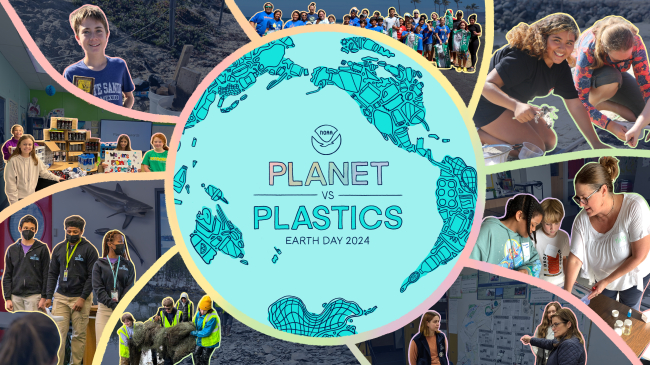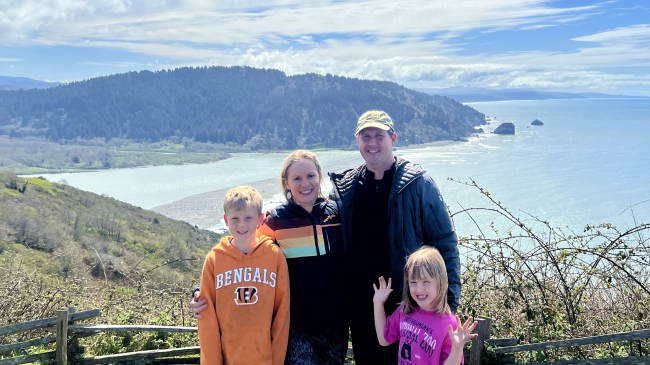It's Aquaculture Week! Aquaculture Week celebrates the vital role that aquaculture plays in supporting our nation’s seafood production, creating year-round jobs, rebuilding protected species and habitats, and enhancing coastal resilience. Meet some of the experts working in this important and growing field.
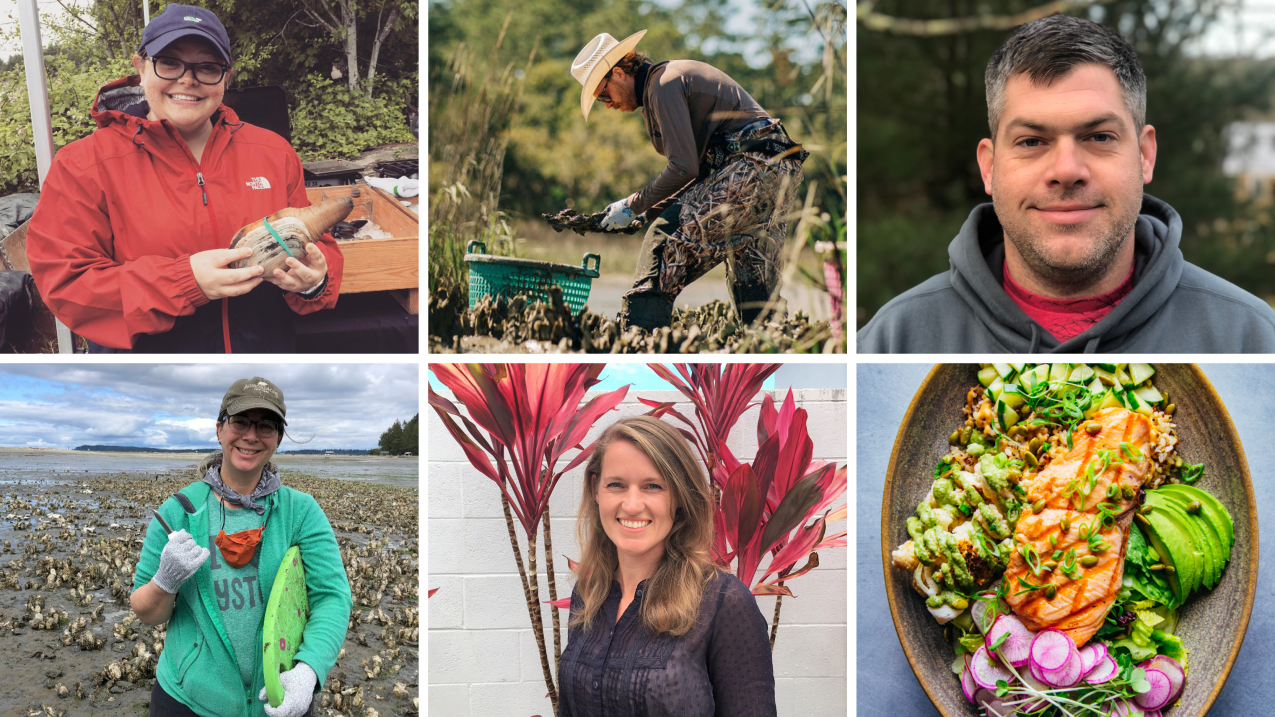
From chefs to seafood farmers, meet some of the aquaculture professionals who help bring seafood to our tables. (Image credit: Images courtesy of Cindy Sandoval, Call Nichols, Dan Ward, Jennifer Bushman, Tori Spence McConnell, and Melissa Poe.)
Cindy Sandoval
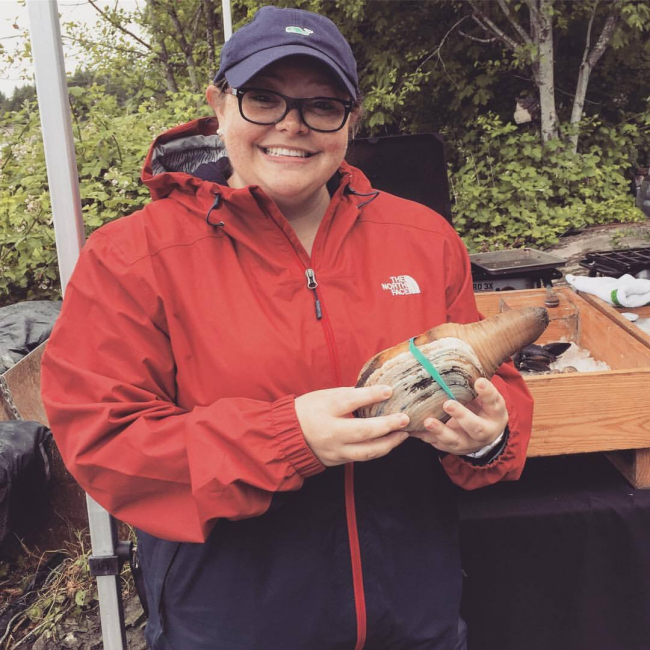
Cindy Sandoval, a communications specialist for NOAA Fisheries Office of Aquaculture, previously worked as a public affairs specialist and video producer for the Pacific Southwest Region of the U.S. Fish and Wildlife Service. She holds an M.A. in professional writing and dual B.S. degrees in biology and public relations from Northern Arizona State University.
What is something that you were surprised to learn when you started your aquaculture career?
I was surprised and impressed at how the international aquaculture community works together to tackle common challenges and expand ocean stewardship.
What's the best part about working in aquaculture?
I enjoy working in a sector that not only provides tasty seafood, but also improves food security, economic opportunities, and community health.
What advice would you give to educators and their students about the benefits and challenges of aquaculture and how they relate to STEAM (science, technology, engineering, art, and mathematics) education?
We are seeing a growing sense of urgency and optimism around aquaculture. As the global population continues to grow, a number of careers and disciplines will be needed to farm our oceans. Everything from math, biology, business, and culinary arts can be taught through an aquaculture lens.
What's something unique about aquaculture that makes it a fun sector to work or teach in?
I think one of the most interesting aspects of my job is telling the story of farmers. These hard working folks battle the elements and work long days to feed the nation. They are the postal workers of the ocean; they work in snow, ice, heatwaves, and during 3 a.m. low tides. Introducing these farmers and their products to the public is my favorite part of aquaculture.
Call Nichols
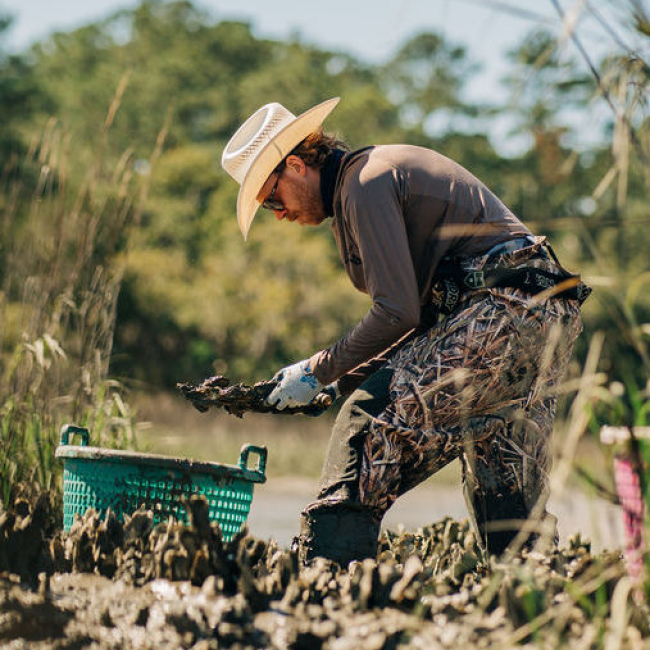
Call Nichols has worked in all aspects of the shellfish business from farming, harvesting, hatchery, marketing, and sales to shucking, education, advocacy, and technology. He’s worked with The Nature Conservancy’s Shellfish Grower’s Climate Coalition offsite link and recently started a position with BlueTrace Shellfish Solutions.
What is something that you were surprised to learn when you started your aquaculture career?
I was, and continue to be, surprised by how many different ways there are to grow an oyster. The range of conditions, localities, and regulations are immense. I am consistently blown away by how oyster folk of all stripes have adopted the practice to their unique situations.
What's the best part about working in aquaculture?
Aquaculture is part of the solution. As a society we are up against a host of challenges. Responsible aquaculture addresses some of the most pressing, such as climate change, food insecurity, cultural dissolution, political polarization, and rural economic stagnation. The diversity of people and places involved in aquaculture offers endless inspiration.
What advice would you give to educators and their students about the benefits and challenges of aquaculture and how they relate to STEAM education?
My advice would be to get out and experience as many aquaculture operations as possible. This sector is so diverse and ripe for innovation. Go see the countless ways in which aquaculture is being practiced in this country.
What's something unique about aquaculture that makes it a fun sector to work or teach in?
Working in nature often involves some form of extraction. For those of us that love to work outside, growing shellfish is a unique way to work in and with nature to produce food. Aquaculture involves so many aspects of our lives — environment, business, politics, and culture. There is something for everybody. Working in this industry you get exposure to all these different fields and more.
Jennifer Bushman
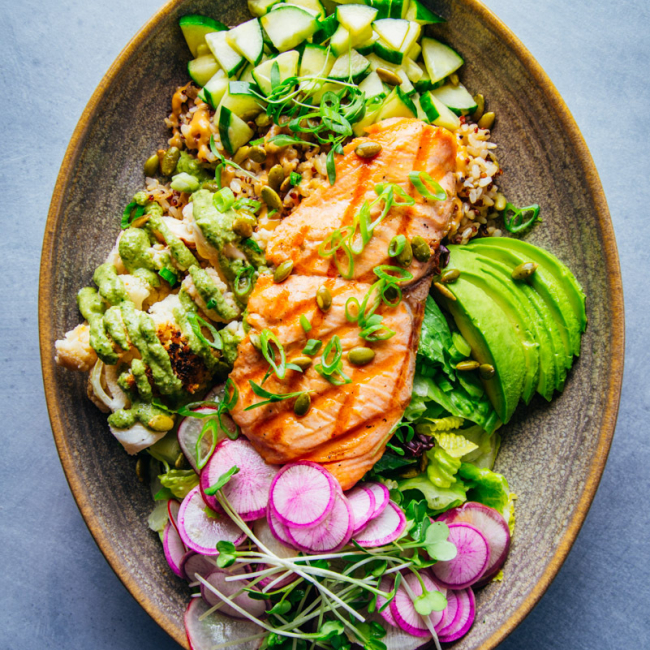
Jennifer Bushman offsite link is the founder of Route to Market and a strategy consultant in the sustainable, ethical aquaculture industry working to provide solutions to complex situations. She has been recognized numerous times by the James Beard Foundation and the International Association of Culinary Professionals as one of the country's top culinary consultants, communicators, and teachers.
What is something that you were surprised to learn when you started your aquaculture career?
I have experienced the challenges and victories at every level of the supply chain, and I know what it takes to champion the water farmer but was surprised to find that so few were doing it. From egg to plate, there’s a unique story to be told, a unique journey to be made, and I am here to help you tell it to the world.
What's the best part about working in aquaculture?
The best part is knowing that it is not IF but WHEN. Aquaculture has come a long way. But there is so much opportunity and innovation ahead. It gives us a unique and rare opportunity to truly build a new food system as we look to the future.
What advice would you give to educators and their students about the benefits and challenges of aquaculture and how they relate to STEAM education?
We need you all to help us to develop these innovations in order to achieve best-in-class rearing, highest level animal welfare, and also get costs down. Aquaculture cannot be available only to the few. It is the greatest chance that we have to fight nutritional injustice.
What's something unique about aquaculture that makes it a fun sector to work or teach in?
While this is not an easy field given the mistakes of the past, we have a unique and rare opportunity to build this "future of food" system and to give it its rightful place at the dinner table. The sky is truly the limit!
Tori Spence McConnell
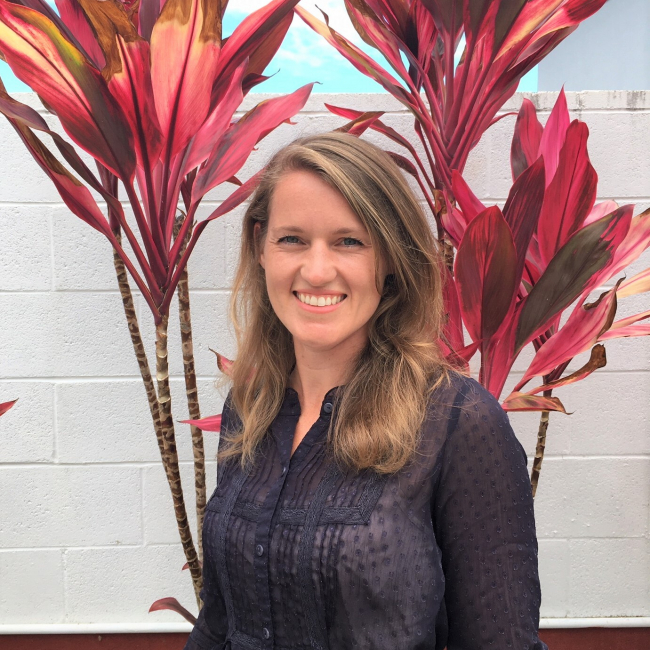
Tori Spence McConnell, regional aquaculture coordinator and fishery policy analyst for the NOAA Fisheries Pacific Islands Regional Office (PIRO), holds an M.S. in aquaculture and fisheries from the University of Rhode Island. She previously worked as the senior aquaculture scientist at the Monterey Bay Aquarium Seafood Watch program.
What is something that you were surprised to learn when you started your aquaculture career?
Aquaculture comes in a diversity of forms, serves a diversity of purposes, and is, literally, everywhere.
What's the best part about working in aquaculture?
Aquaculture is both a science and an art — you can get creative with system design, species you'll raise, etc. and each operation is unique.
What advice would you give to educators and their students about the benefits and challenges of aquaculture and how they relate to STEAM education?
Keep it fun! If you're stumped by something challenging in your aquaculture education, look to the other aspects of STEAM to get your brain working creatively and you'll probably come up with a great solution to try!
What's something unique about aquaculture that makes it a fun sector to work or teach in?
The confluence of understanding biology and physiology at the organism level, ecosystem level, and engineering required to raise species for food, fun, and restoration makes aquaculture an exciting topic for so many disciplines.
Dan Ward
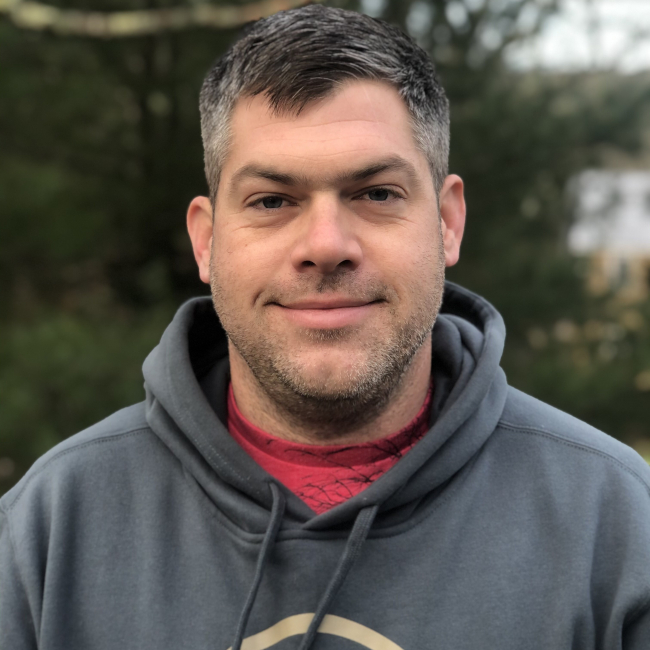
Dan Ward, Ph.D., is the owner of Ward Aquafarms, LLC. offsite link, and an aquaculture researcher. He holds a Ph.D. in environmental science from the University of Rhode Island. Many of the research and development projects conducted by Ward Aquafarms are collaborative efforts with different Universities in the northeastern United States as well as commercial fisherman, shellfish farmers and town, state, and government agencies such as NOAA and USDA.
What is something that you were surprised to learn when you started your aquaculture career?
How much farming in the ocean is similar to farming on land. It’s a different environment, but ocean farmers need natural nutrients to grow the plants (natural microalgae) to feed the animals (filter feeding shellfish) which we harvest as a healthy source of protein. And it all requires a lot of labor!
What's the best part about working in aquaculture?
Working on the water producing seafood for a living, but being home every night.
What advice would you give to educators and their students about the benefits and challenges of aquaculture and how they relate to STEAM education?
Aquaculture serves as a great platform to integrate STEAM principles into real world scenarios. Whether a farmer is laying out their farm plots for the season or calibrating a sensor to measure water quality, farmers use many STEAM concepts every day.
What's something unique about aquaculture that makes it a fun sector to work or teach in?
There are opportunities to get your hands dirty and play around with plants and shellfish we grow in the ocean, that many people don't encounter often otherwise.
Melissa Poe
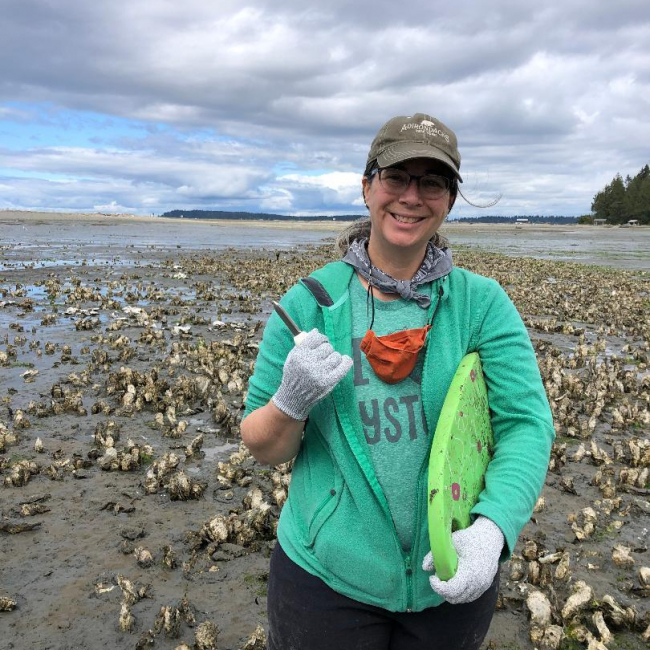
Melissa Poe, Ph.D., is a social scientist at Washington Sea Grant, earned a Ph.D. in environmental anthropology from the University of Washington, with a specialization in ethnoecology, Indigenous resource management, community-based participatory action research, food systems and well-being. She is the coordinator for the Cross-Pacific Indigenous Aquaculture collaborative offsite link.
What is something that you were surprised to learn when you started your aquaculture career?
I was surprised that there is an important role for an anthropologist in the aquaculture field.
What's the best part about working in aquaculture?
I love working together with community partners to connect with the water and ancestral knowledge in growing food for people.
What advice would you give to educators and their students about the benefits and challenges of aquaculture and how they relate to STEAM education?
Aquaculture encompasses all the components of STEAM to grow aquatic food. My advice is to include diverse ways of knowing, including traditional knowledge. For example, get to know how First Peoples cultivated marine foods in your area. What technologies have been developed to enhance resources?
What's something unique about aquaculture that makes it a fun sector to work or teach in?
I love the smells of drying seaweed and muddy tidelands!


